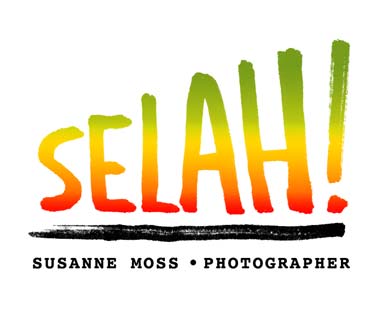Appx. 49 minutes
Produced and directed by Susanne Moss
Available on DVD, Blu-Ray and digital download.
DISC VERSIONS:
Audio in 5.1 surround sound with interactive menus in English and Spanish, subtitles in English and Spanish
DVD $24.95 USA first class shipping included
Blu-Ray $29.95 USA first class shipping included
(The Blu-Ray includes five bonus features)
Allow 1-2 weeks delivery.
DIGITAL VERSIONS:
Digital Download available in either English or Spanish with subtitles available.
For English digital rental/purchase and bundle options CLICK HERE!
For Spanish digital rental/purchase and bundle options CLICK HERE!
Appx. 45 minutes.
Spanish with English Subtitles
Produced and directed by Susanne Moss
DVD VERSION:
DVD $19.95 USA first class shipping included
English Synopsis:
In Santiago de Cuba, la Fiesta del Fuego (the Fire Festival) has been celebrated for nine days every year since 1980. Organized by the Casa del Caribe, the festival celebrates Caribbean culture, history and religious traditions. Visually stunning footage combined with animated and informative interviews guide you on an adventure discovering Cuba’s many cultures.
Communities surrounding Santiago descend upon the city to partake in the festival. Native Indians, Santeros and Rastafarians perform sacred rituals passed-down by their ancestors. Participants from a different Caribbean country are invited each year.
Major events include an opening ceremony and two parades, the second of which is judged by a panel of city dignitaries and spiritual leaders. Finally, the Fiesta concludes with a spectacular burning of an effigy of the devil! The “fire” symbolizes ridding the world of all its bad influences and evil. Throughout the festival, spectators are filled with exuberance from non-stop dancing, drumming and singing.
Español Sinopsis:
En Santiago de Cuba, la Fiesta del Fuego se celebra durante nueve días cada año desde 1980. Organizado por la Casa del Caribe, el festival celebra la cultura del Caribe, la historia y las tradiciones religiosas. Visualmente es un video impresionante combinado con entrevistas animadas e informativas que guian esta aventura de descubrimiento sobre muchas culturas de Cuba.
Comunidades que rodean Santiago descienden sobre la ciudad para participar en el festival. Los Indios Nativos, Santeros y Rastafarianos realizan rituales por herencia de sus antepasados. Se invita a los participantes de un país del Caribe diferente cada año.
Eventos importantes incluyen una ceremonia de apertura y dos desfiles. El segundo es juzgado por un panel de dignatarios de la ciudad y líderes espirituales. ¡Por último, la Fiesta concluye con una espectacular quema de una efigie del diablo! El "fuego" simboliza librar al mundo de todas sus malas influencias y el mal. Durante el festival, los espectadores están llenos de la exuberancia de baile, percusión y canto.
RAS CUBA: INTERVIEWS WITH CUBAN RASTAFARIANS
Rastafarians discuss their culture, beliefs and life style as Rastafarians living in Cuba.
English Synopsis
The Cuban Rastas in this video share, with enthusiasm and sincerity, their personal understanding of Rasta consciousness. Their wish is to establish a lively communication with the International Rastafarian community, and interested others, for the purpose of greater knowledge and mutual understanding.
The Rastafarian movement began in Kingston, Jamaica, in 1930 when Prince Ras Tafari was crowned His Imperial Majesty Haile Selassie I, Emperor of Ethiopia. A few Jamaican preachers recognized him as the Black Living God (or Jah) who had come to redeem them. The culture quickly spread to other Caribbean Islands, to North, Central and South America, Europe, Asia and Africa. However, it took 50 years to go full circle and reach Cuba, a mere 90 miles north of Jamaica. Thus, the Cuban Rastafarians first appeared around 1980.
Life in Cuba presents Rastas with a variety of unique circumstances in opposition to their beliefs: Cuban history teaches that Haile Selassie was an evil dictator, religious practice is frowned upon, conformity encouraged, patriotism overrides heritage, and Cuban Reggae music is neither officially recognized nor supported as “Cuban Music”. In spite of these obstacles, the Rastas hold firm in their faith and life style.
Español Sinopsis:
Los Rastas cubanos en este video comparten con entusiasmo y sinceridad su comprención personal de su conciencia rasta. Sus esperanzas son establisar una comunicación viviente con la comunidad International Rastafari, y otras personas interesadas, con la intensión de un mayor conocimiento y comprención mutua.
El movimiento Rastafari comenzó en Kingston, Jamaica en el año 1930 cuando el príncipe Ras Tafari fue coronado como su majestad imperial Haile Selassie I, el emperador de Etiopia. Algunos predicadores jamaicanos lo reconocieron como el Dios Negro Viviendo (o Jah) que vino a hacer redención a la tierra. La cultura se extendió a otras islas caribeñas, a Norteamérica, a América del Sur y Central, a Europa, a Asia y Africa. Pero para llegar a Cuba --- sólo 90 millas al norte de Jamaica --- tardó la cultura Rasta 50 años. Por eso, los Rastafaris cubanos aparecieron como en el año 1980.
La vida en Cuba presenta una variedad de acontecimientos unicos que están en oposición con las creencias de los Rastas. Por ejemplo: la historia cubana dice que Haile Selassie fue un dictador malo, la practica religiosa fue desaprobada, se requirió que la conformidad, el patriatismo fueran más importantes que la herencia, y la música reggae cubana ni es reconocida oficial ni aprobada por la mayoría como la música cubana. A despecho de estos impedimentos, los Rastas están unidos en su fé y en su estilo de vivir.


